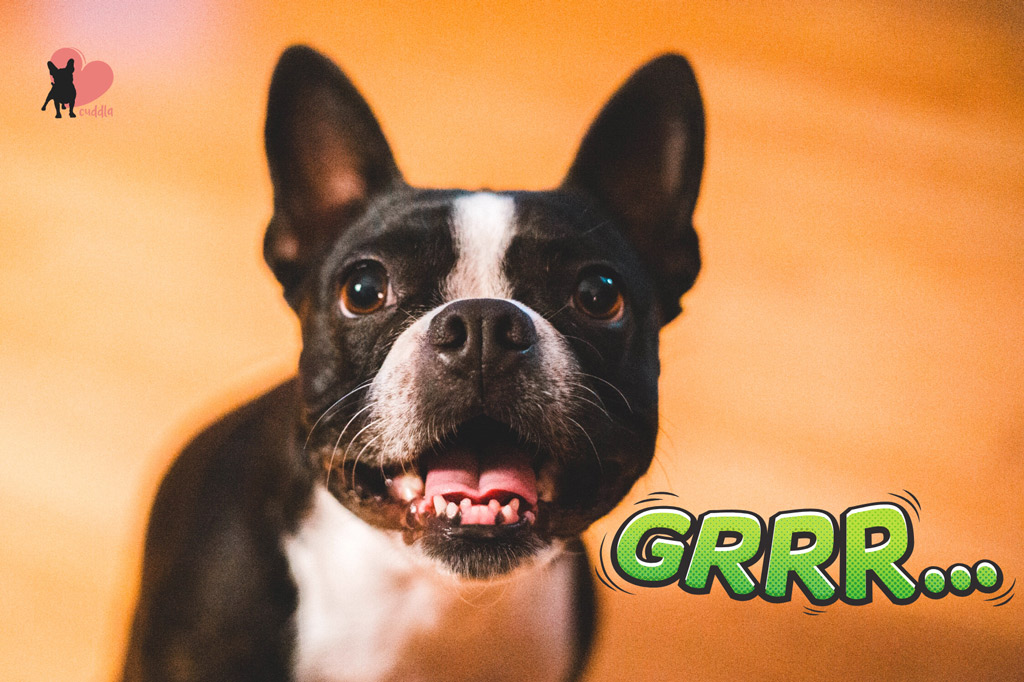
If you are considering the Boston Terrier breed as a companion, you are probably wondering about their temperament.
Are Boston Terriers aggressive? No, Boston Terriers are not aggressive by nature. However, they can exhibit signs of aggression in certain situations.
Let’s see what “aggressive” means and what can cause your Boston to respond in an unusual way.
What Is Dog Aggression?
Dog aggression is a way of communication. It’s a tool to communicate discomfort or fear over a particular trigger.
Often, dog parents don’t recognize the warning signs before a bite. As a consequence, they perceive their dog as suddenly flying off the handle for no reason!
However, that’s rarely the case. Dogs give beforehand warning before their response escalates to aggression.
The Ladder of Aggression
The British Small Animal Veterinary Association (BSAVA) created “The Ladder of Aggression” for humans to understand how dogs communicate and prevent bites.
By understanding how dogs communicate their discomfort and fear, we are able to avoid putting them in situations where they feel like bitting is their only option!
By looking at the ladder, you will realize that… Bitting is a dog’s last resort.
Here’s how to spot the signs before a dog has an aggressive response:
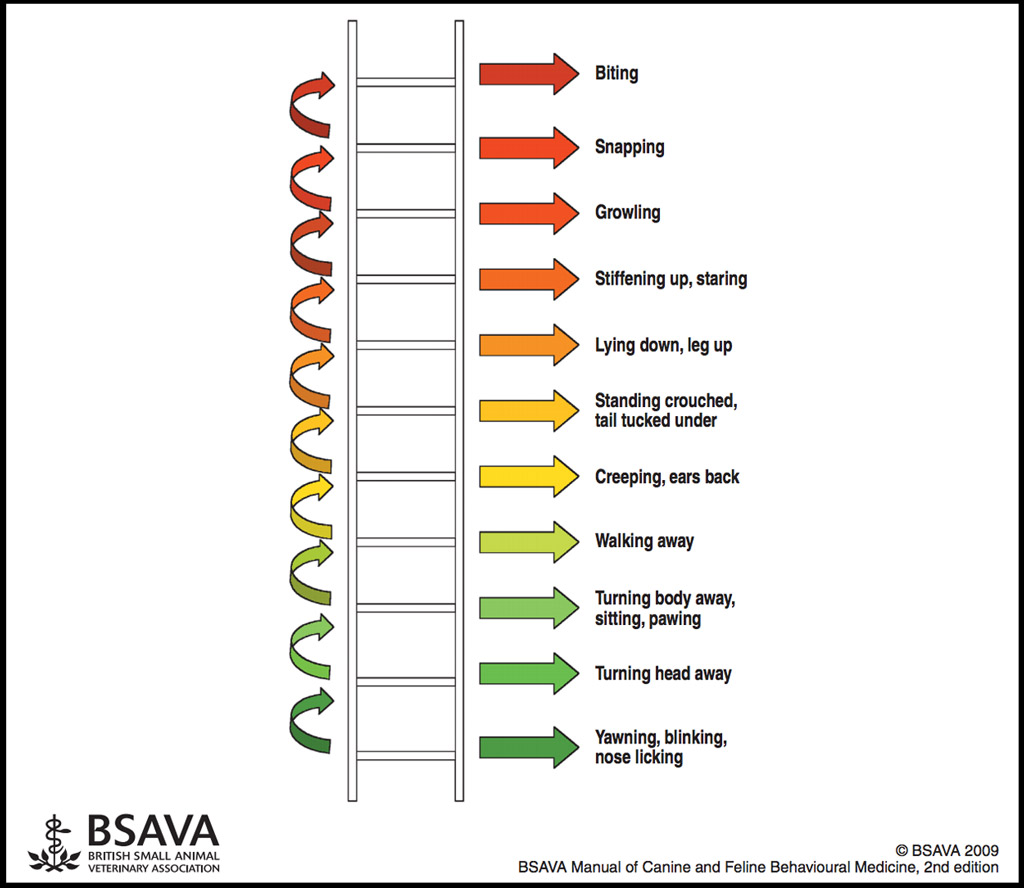
Smaller dogs can often climb up the ladder of aggression much more quickly than bigger dogs.
This means they could be skipping out altogether many of the signals that we usually see just before a snap or a bite, like a growl.
Sadly, this is because they have learned that there’s no point since their owners didn’t listen. If you think about it, you are more likely to listen to a German Shepherd growl and take it seriously, than a Yorkie or a Chihuahua.
Are Boston Terriers Aggressive?
If you heard that they were bred as fighting dogs, your concern towards aggressive behaviour is expected.
Boston Terriers came to be sometime in the late 1860s, in Liverpool (United Kingdom), where a Bulldog and the now-extinct white English Terrier were crossed. The result was a tough, muscular dog named Judge.
This “American Gentleman” was accepted in 1893 by the American Kennel Club as the first non-sporting breed.
Although they were initially bred as fighting dogs, selective breeding transformed the bulky fighter of Judge’s time into a smaller, sweeter, and more attractive companion dog.
Read also: What Were Boston Terriers Originally Bred For?
As a result, Boston Terriers are usually non-aggressive, friendly and easy-going dogs.
They are loyal to their family, but not to the point that they are wary of strangers. They have an even temperament and they can adapt well to children.
Also, they are often friendly with other dogs and cats. Some can be quite noisy toward bigger dogs, although barking is not a sign of aggression here. Even though Boston Terriers have lost most of their fighting traits, some males will still challenge other dogs if they feel their territory is being invaded.
Boston Terriers can have a high prey drive toward smaller animals, especially rodents, and other small pets.
However, this is just a generalization. This does not mean that every single Boston Terrier is friendly. Their personality can vary, just like every breed. There are no Bostons that have the exact temperament.
Some are described as hyperactive and high-spirited while others are calmer and more dignified.
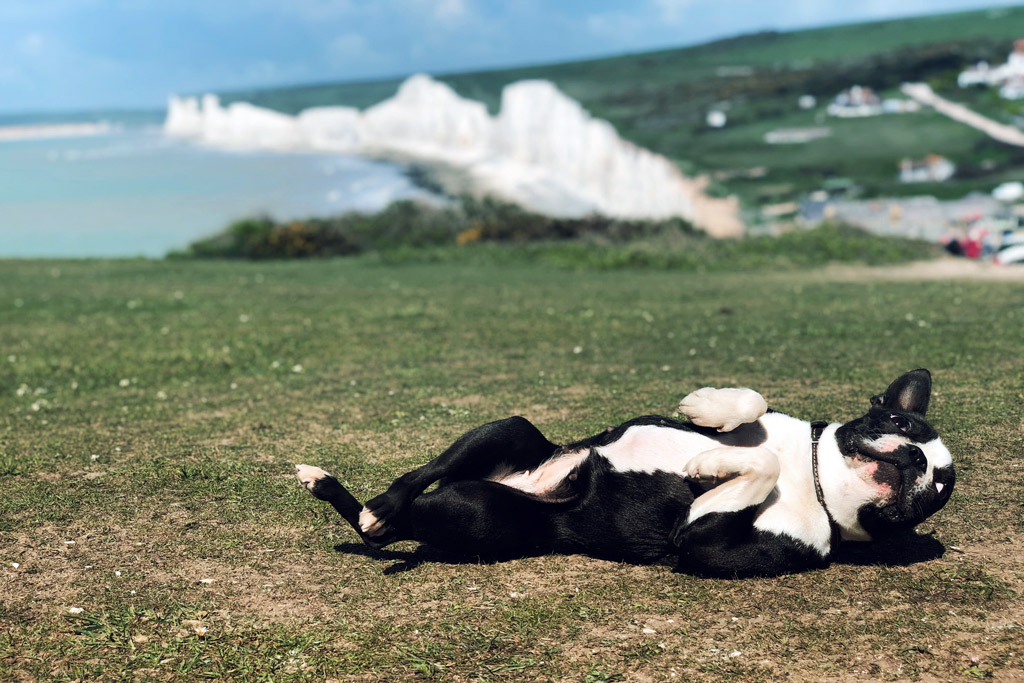
But the point is…
The majority of dogs are not naturally aggressive, and this includes Boston Terriers.
So, no, Boston Terriers are not aggressive by nature. They can be friendly and get along with anyone, with the right approach.
However, bear in mind that their behaviour will depend on a few factors.
Boston Terrier’s Behaviour
How can you determine a dog’s behaviour?
How a Boston Terrier behaves is influenced by a variety of factors:
- Genetics: Dogs inherit part of their temperament. Reputable breeders will choose to breed Bostons with even temperament and good personality traits.
- Personality: A Boston’s individual personality that gets shaped by genetics and learning experiences whilst growing up.
- Socialization: Appropriate socialization before 14 to 16 weeks of your puppy’s life helps in a positive development on your Boston’s personality. It enables a dog to cope with new situations with confidence. Socialization is important to prevent possible aggression problems from developing.
- Motivation: It also plays a role in your dog’s behaviour. How important a particular activity or reward is to a dog.
- Training: If you teach your pooch from an early age using positive reinforcement training, you will be able to prevent a huge list of unwanted traits.
- Environment: Your Boston Terrier’s previous experiences and the environment will influence his behaviour too. Due to the fast-paced lifestyle we have, our dogs are more prone to having negative experiences. For instance, if a Boston is left alone for long hours, he’s likely to develop separation anxiety and other negative responses.
Read also: Boston Terriers Personality – What’s It Like to Own One?
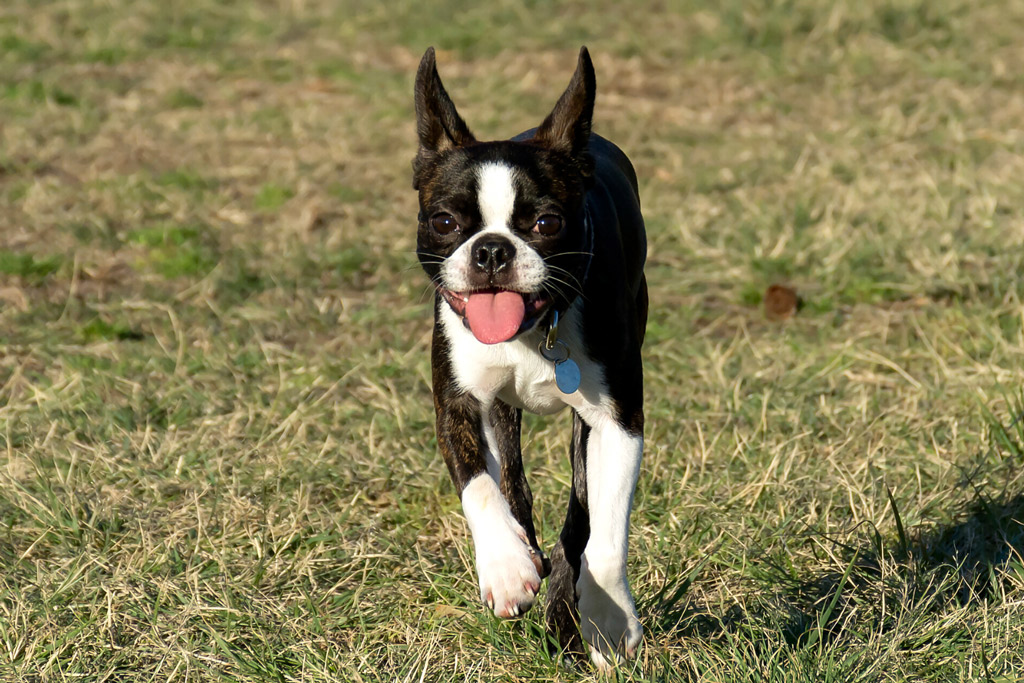
Why Is Your Boston Terrier Suddenly Aggressive?
Bostons can become jealous and possessive.
If your pooch has exhibited signs of aggression… Don’t worry! His behaviour can be changed. But first, you need to identify the cause of the trigger.
Here are the different types of aggression to look for:
Defensive Aggression
This is due to fear or anxiety.
Their body-language is submissive (they avoid direct eye contact, lower their head and body, tail between their legs, and ears back). But they may snap or bite if cornered.
Dominant Aggression
This is when male Boston Terriers behave excessively confident in front of another male dog. They may try and make themselves look big, even a bit unfriendly. But it’s unlikely that the situation escalates to aggression.
Territorial Aggression
These dogs can also be somewhat territorial. Due to their ancestry, they will guard and defend their homes against those they see as a threat.
This will cause a Boston to bark, growl, or show his teeth at humans or dogs when they come on to his property.
You might be wondering… Do Boston Terriers Bark a Lot? well actually, they make little noise when guarding.
Possession Aggression
You will get a similar response to territorial aggression.
Basically, your Boston is guarding resources; in this case, food, a bed or/and toys.
Insider Tip: Dogs with a history of deprivation or competition can show aggression in the form of guarding resources from other dogs or/and humans.
This behaviour comes from anxiety, fear or loss, and a desire to protect important resources such as food, toys, and sometimes even their human owner!
Protective Aggression
The Boston Terrier can become very attached to his family. If not properly socialized, this behaviour can evolve into guarding.
In this case, Boston Terriers are trying to protect their owners or family around another dog or a human.
This perception can lead to aggression, especially when it involves others coming into his home.
Sexual Aggression
This is an intra-sexual type of behaviour, i.e. male to male or female to female.
Usually, it shows up when a male dog is competing with another male dog for a female. This can lead to dangerous fighting.
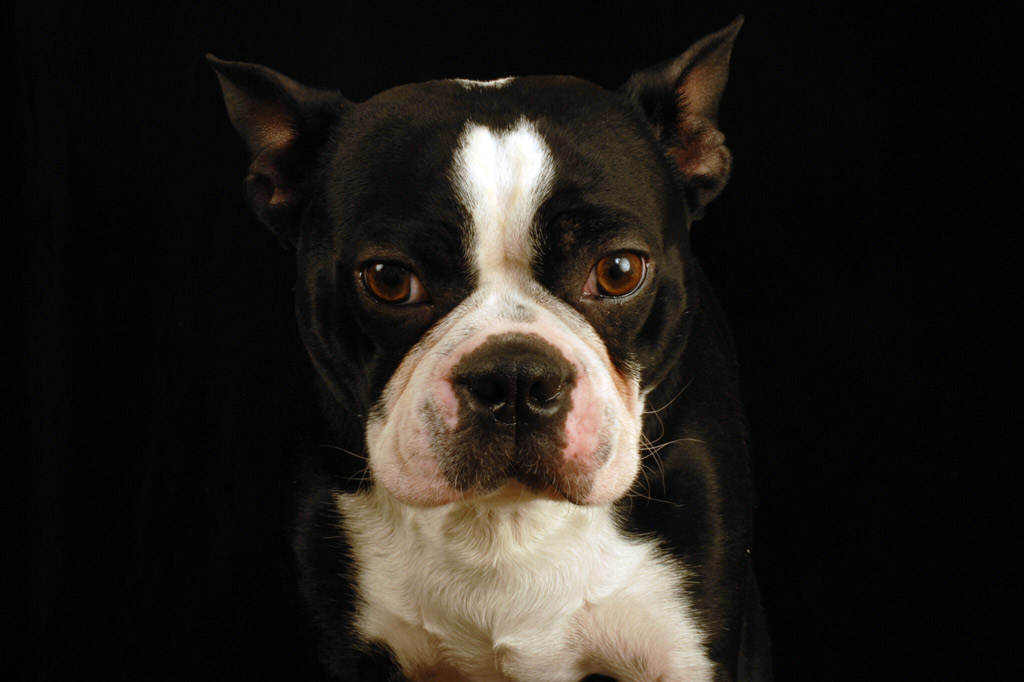
How to Prevent Aggression in Boston Terriers
Before addressing aggressive behaviour, take your dog to a veterinarian for a complete physical examination.
Sometimes chemical imbalances such as low thyroid hormone levels or abnormalities of the liver can trigger aggression in dogs.
Once you know that your pooch has no physical problems, it’s time to check with a dog trainer, which I may be able to help with…
Click here to visit our Dog Training Essentials, where you will get a 3-part mini audio series + the everyday resource used by a well-known dog trainer.
A positive reinforcement training approach will help with:
- Teaching your dog good manners.
- Socialization, and how to continue to being sociable as they grow.
- Address bad behaviours that developed into habits like:
- Jumping
- Food stealing
- Chasing people
Consistent training, rewards and a better understanding of your dog’s body language will help you to prevent aggression.
You can also get this using the button below. Happy training! 😉
